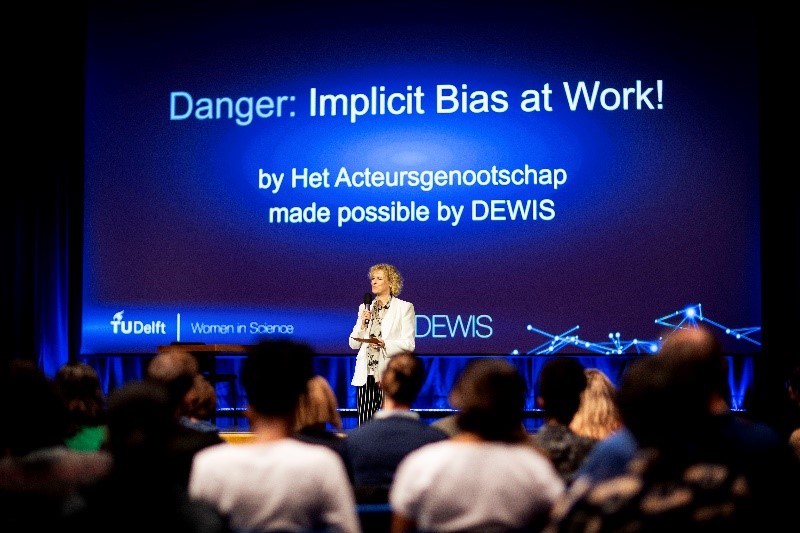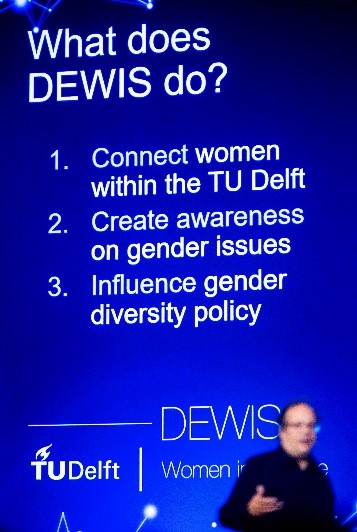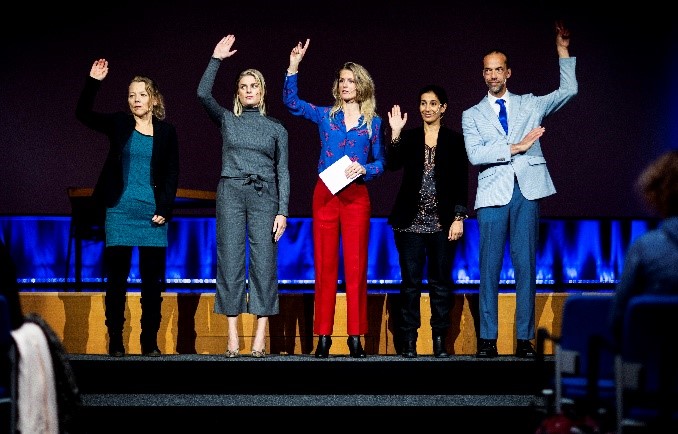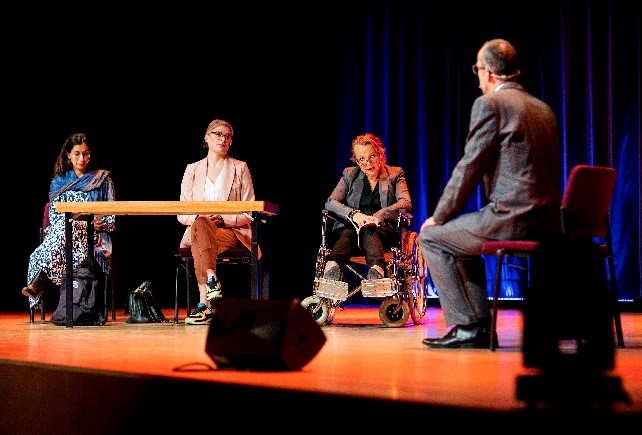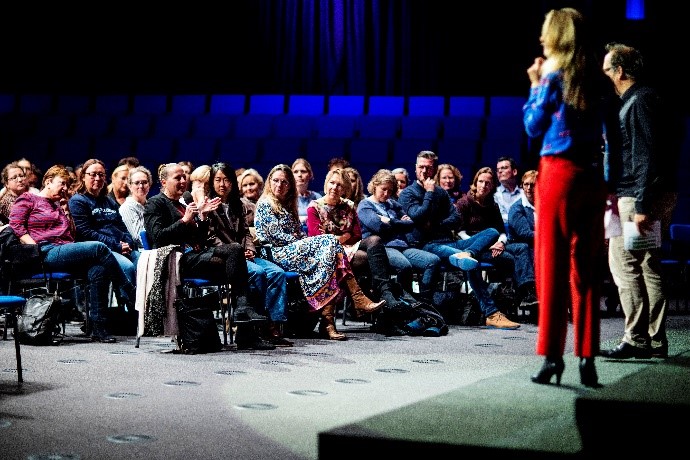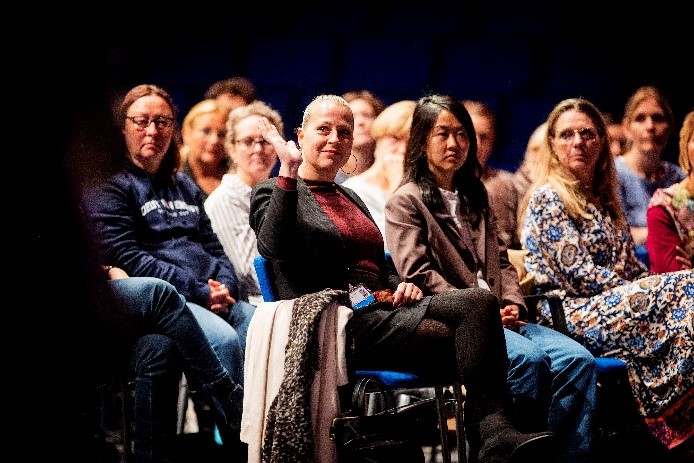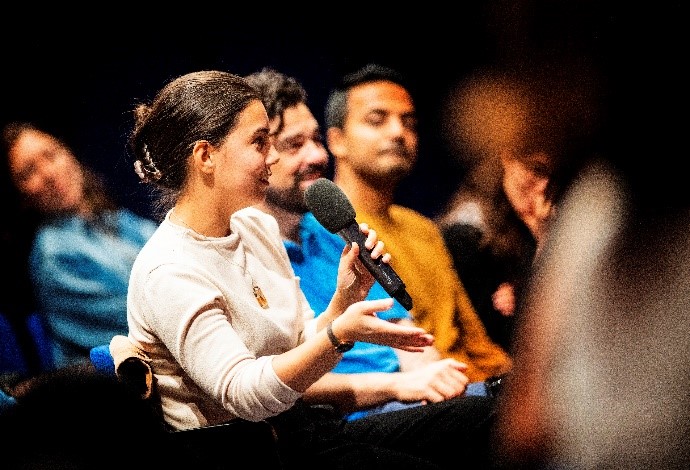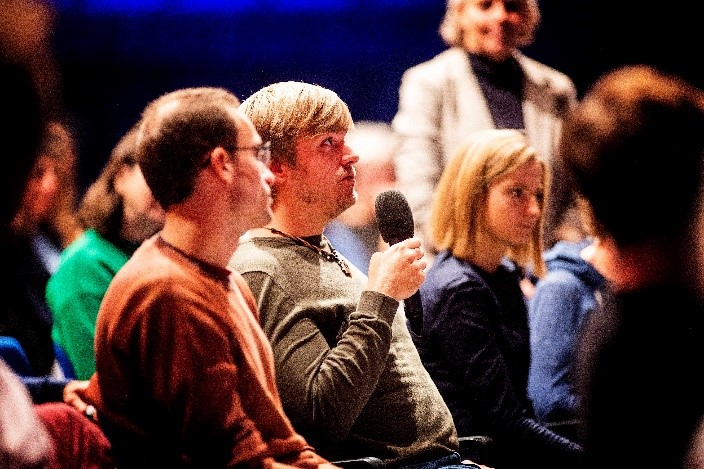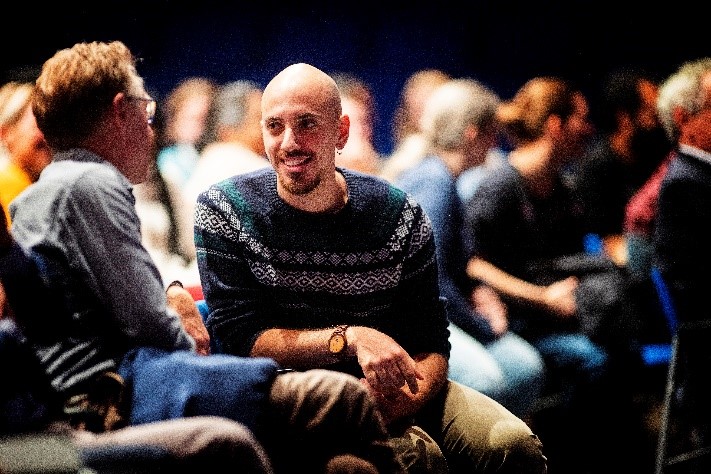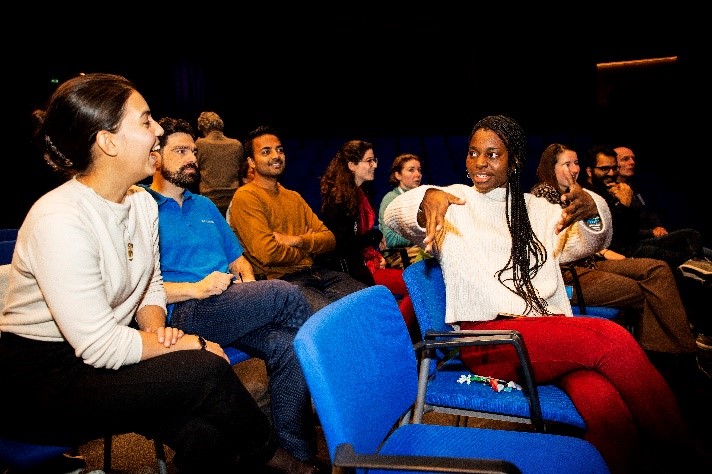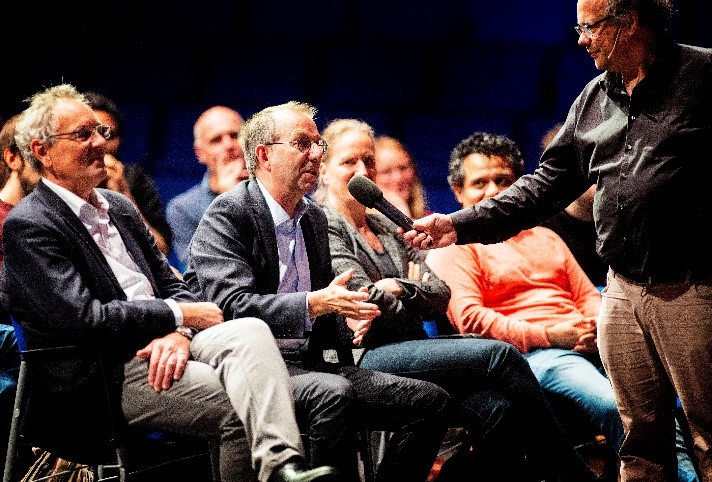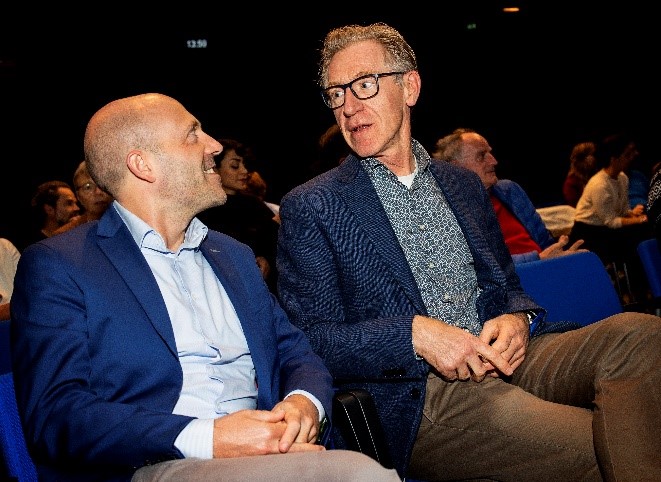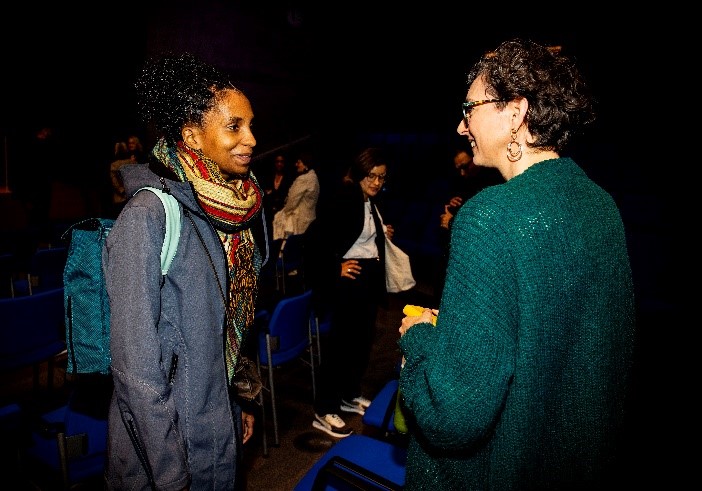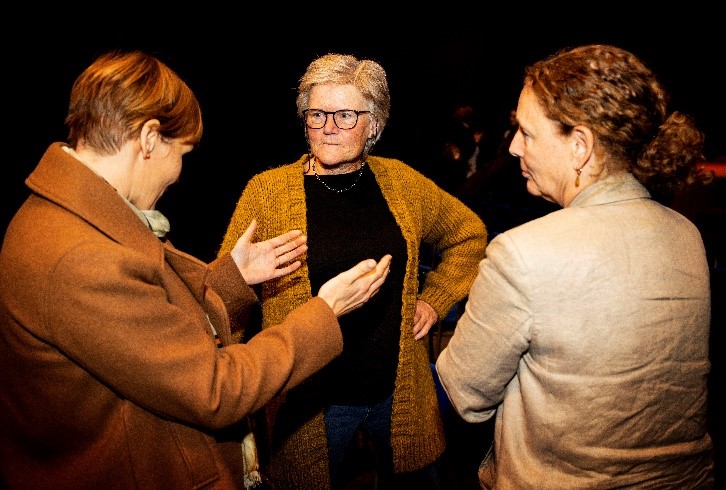Lookback and takeaways Theatre Play: ‘Danger: Implicit Bias at Work!’ on Diversity Day, 4 October 2022
Delft Women in Science (DEWIS), organized the interactive Theatre Play: ‘Danger: Implicit Bias at Work!’ on Diversity Day, 4 October 2022. The humorous, interactive theatre play by Het Acteursgenootschap, contained four short scenes that examined the language and mechanisms in academia that are discriminating and stigmatizing. The scenes illustrated various forms of implicit bias.
Is it a Man’s World? How does this manifest? What’s implicit in a certain situation? What language is used? What are the unquestioned attitudes? These and many other questions were discussed with almost 300 employees during the interactive theatre production.
We discussed ‘trivial incidents’ in which a woman academic is confronted with implicit bias; all drawn from life’s experience. We learned that the first step is always to make implicit behaviour explicit. But how? We have heard many different reactions and it seems never to be straight forward and can be very challenging at times. These incidents are perhaps trivial in themselves. But if this sort of thing happens every day? As someone in the film Picture A Scientist says: “a ton of feathers is still a ton”.
We talked about the obstacles to promotion and career. The career ladder starts at more or less the same time that women are starting a family and considering buying a home. Is the system weighted against women? The faculty of Aerospace Engineering has launched a parental fund. This new policy helps both men and women who are starting a family. Someone commented this is not help; it is the only right thing to do.
We discussed the physical environment and how this affects a women’s perception of a discipline. Tradition is important, but so is representation. We looked at the academic culture. Micro-aggressions can be reported and should be dealt with appropriately by the confidential advisors and the ombudsperson. TU Delft has a Code of Conduct and undesirable behaviour is simply not accepted.
It is important to acknowledging bias. The simple act of acknowledging that discrimination may persist despite people’s best intentions is a key step. Change can happen when advantaged group members express their readiness to call out unequal treatment, and when the organisation is open to suggestions to improve its procedures.
Caspar Chorus, Dean of the Faculty of Industrial Design Engineering: “For me, the event raised a familiar mixed feeling of optimism (such insightful and open discussions!) and uneasiness (so much work still to be done, and no 'easy' solutions). Important to go through this though, and especially to listen to colleagues who have learned many important lessons the hard way and are ready to help management to up their game.”
Open discussions continued at lunch and during drinks.
Want to learn more: TU Delft Learning Hub
In the digital learning portal for employees, the Learning Hub, you can follow training courses on Diversity & Inclusion.
The confidential advisors
If you are confronted with undesirable behaviour or suspect a breach of integrity at TU Delft, you can go to one of the confidential advisors for support and advice. The confidential advisor will listen to your story and help you explore the steps you can take.
The Ombuds Officer staff
Is there a problem in the workplace that could lead to a dilemma or conflict and you can't work it out together? Then you can contact the Ombuds Officer staff, Birgitte Peters.
The Integrity Roadmap for Staff
The Integrity Roadmap for Staff lay out the various pathways to getting any help you might need regarding integrity matters.
Contact
You can also contact DEWIS (Zofia Lukszo or Astrid Taal), the TU Delft Diversity & Inclusion Office (David Keyson or Marije Severs) or the TU Delft Integrity Office (Ibo van de Poel or Rivka van Mastrigt).
Pictures by Guus Schoonewille
